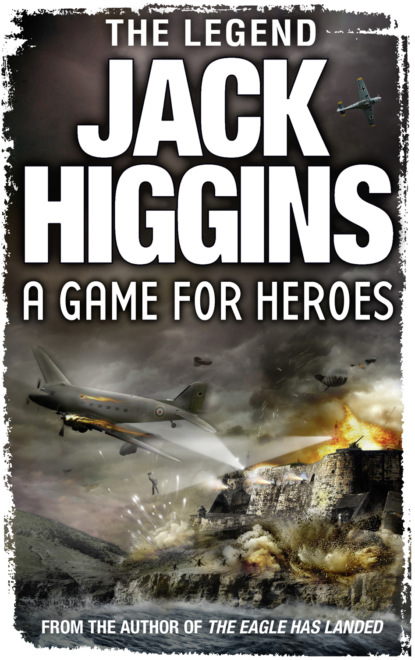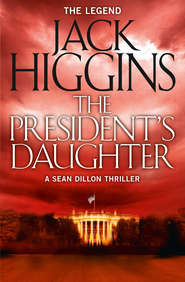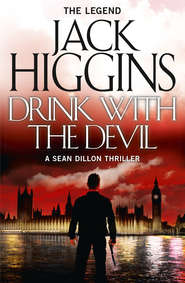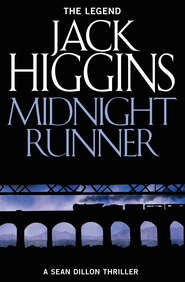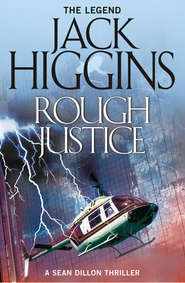По всем вопросам обращайтесь на: info@litportal.ru
(©) 2003-2024.
✖
A Game for Heroes
Автор
Год написания книги
2018
Настройки чтения
Размер шрифта
Высота строк
Поля
Henry took off his spectacles and polished them carefully with his handkerchief. ‘For years, Hitler has poured men and equipment into the islands. His great fear was that we might invade there first as a springboard to Europe.’
‘So he was wrong. Doesn’t that make them something of a dead letter?’
‘The strongest fortifications in the world, Owen,’ he said calmly. ‘The same number of strong points and batteries as they had to defend the entire European coast from Dieppe to St Nazaire. Add to that a garrison of something like forty thousand troops and you’ll see what I mean.’
‘So what am I supposed to do about it?’
‘Go home, Owen,’ he said. ‘Go back to St Pierre. I’d have thought you would have enjoyed that.’
2
Now Destroy (#ulink_6d9a7a19-3d75-50b8-a509-21ef9ee09369)
St Pierre is the most outlying of the Channel Islands and fourth in size. During the eighteen-fifties the British Government, alarmed by the development by the French of a strong naval base at Cherbourg, embarked on a plan which was designed to make Alderney into the Gibraltar of the North. Most of the workers imported to labour on the fortifications were Irish fleeing the effects of the famine in their unhappy country.
A similar scheme, though on a less ambitious scale, was mounted in St Pierre. A breakwater was constructed to enlarge the harbour at Charlottestown and four naval forts were built at various points on the coast.
The labour force, as far as St Pierre was concerned, was imported from South Wales which explains that strange mixture of Welsh and French and English to be found on the island and accounts for the fact that my father, and I following him, had a name like Owen Morgan although my mother, God rest her soul, had been born Antoinette Rozel and spoke French for preference to me until the day she died.
Standing there now on the Lizard cliffs, I stared out to sea south-west to Brittany beyond the horizon, to the Golfe de St Malo and St Pierre and for the briefest of moments, a fugue in time, I saw the grey-green island again, those granite cliffs splashed with bird lime, sea birds crying, wheeling in great clouds, razorbills, shags, gulls, oyster-catchers and my own especial favourite, the storm petrel. And there was laughter, too, faintly on the wind and I seemed to see again a young girl, skin browned by summer’s heat, long hair flying as she ran from the barefoot fisher boy. Simone. I could almost reach out and touch her.
Instead, a hand on the arm brought me back to life. I turned and found Henry at my side, a slight, quizzical frown on his face. ‘Will you go, Owen?’
For five and a half years I had done this man’s bidding, had lived in constant danger of my life, had lied, cheated, killed, murdered, until my very nature seemed to have changed. After that final bloody business in the Vosges Mountains, the eight-day battle with crack SS fighting troops that had left me maimed for life, I had thought such days over, gone for ever. And now, my heart was beginning to pound, my throat to go dry.
‘I’m going to tell you something, Henry,’ I said, and when I lit a cigarette, my hands were trembling. ‘I’ve been lying here in the sun for some considerable time now, trying to write and failing, trying to love one of the finest women I’ve met in my life and failing at that also. I’ve got a good friend up the road who supplies me with all the pre-war Scotch I can drink, but I seem to have lost my taste for it. I slept better on the run in France, in the blackest days of ’41, than I do now. Would you say that any of that made any kind of sense at all?’
‘My dear Owen, it’s quite simple. You enjoyed every single minute of it. Walking the knife-edge between life and death was meat and drink to you. You have lived more in one day working for me, really lived with action and passion as a man should, than you could have in a lifetime of writing bad poetry and popular novels. That’s why you will go to St Pierre now. Because you need to go. Because you want to go.’
And at that he had miscalculated, had gone too far and I shook my head. ‘Like hell, I will, Henry, and there’s damn all you can do about it.’ I tapped my eye patch. ‘Medically unfit for further service. You even got me a civil list pension. Send our American friend. It’s more his style.’
He produced a buff envelope from his inside pocket, took out a letter and handed it to me. ‘I hope you’ll find that explicit enough. When I discussed it with him, I did point out that there was always the possibility you might feel you’d done your share.’
The letter was from Downing Street, hand written and bore the usual signature. It informed me that I was returned to the active list forthwith and must consider myself to be under the order of Section D and Professor Henry Brandon in connection with Operation GRANDE PIERRE. A nice touch that for Grande Pierre had been my field name in the Vosges. The letter was stamped Action this day.
So that was very much that. I held the letter up. ‘The first personal one he ever sent me. Can I have it?’
He took it from my fingers. ‘Afterwards, Owen, when you come back.’
I nodded and sat down on the rock beside him again. ‘All right, Henry, you’d better tell me about it.’
‘According to our information, the island’s been reasonably heavily fortified,’ Henry said. ‘There was at one time a garrison of something like sixteen hundred, but during the last couple of years, it’s been drastically reduced. The airstrip never amounted to much and after it had been bombed half-a-dozen times, they abandoned it and withdrew the Luftwaffe personnel.’
‘What about the Navy?’
‘They tried to use it as an E-boat base for a while, but it never really worked out. I don’t need to tell you how dangerous those waters are and the tides are a law unto themselves. Plenty of times the harbour is completely unusable so the Navy pulled out as well, although they use it on occasion. That left mainly Artillery units and Pioneers.’
‘How many now?’
‘We think six hundred. Mainly old men and young boys. Things have changed since that glorious romp through France in 1940.’
‘How many islanders?’
‘Apparently you can pretty well count them on the fingers of one hand. Most of the population, as you know, chose to be evacuated to England in 1940 just before the occupation.’
‘Sixty or so stayed,’ I said. ‘Including the Seigneur and his daughter.’
‘Ah yes, Henri de Beaumarchais. He’s dead, it seems. Killed in the naval bombardment.’
I stared at him blankly not quite taking it in. ‘Dead – Henry de Beaumarchais? What naval bombardment?’
‘Ours last year. They had a go at the harbour from three miles out. His daughter is apparently still there, but almost everyone else was moved out six months back. I’m really not quite sure why she hadn’t gone with the others, but there it is.’
‘She will be Seigneur now,’ I said. ‘Lord of St Pierre. They had a woman once before, back in the thirteenth century. She used the male title. Simone will do the same. She has a great respect for tradition.’
I thought of her for a moment, out there beyond the horizon in the old manor house that had been the Seigneurie for untold generations. It had been a long war. She must have been lonely. Lonelier still, now that her father was gone.
It was almost five years since I had seen her. On a dark night in July, 1940, to be precise, a fortnight after the German occupation of the Channel Islands. I had gone in by submarine and landed from a rubber boat at La Grande Bay at the eastern end of the island. It had been as abortive a business as most similar exploits were at that time. I’d seen Simone and her father at the Seigneurie and discovered there were no more than two hundred Germans on the island. I was to be picked up a couple of hours before dawn and had begged them to come with me. They had refused, as I had known in my heart they would, but Simone had insisted on accompanying me to the beach. I remembered that now, and her face a pale blur in the darkness.
‘The thing is,’ Henry said, ‘we’re losing rather a lot of ships in the Channel area, starting six months ago. The same time most of the remaining population was evacuated, you’ll notice. Quite a shock when we discovered what it was.’
‘Secret weapons at this stage of the war?’
‘Good God, no. We knew about this thing as long ago as Anzio. The Germans were late getting into the underwater sabotage field of things with frogmen and so on. Rather surprising when you consider the Italians really started it all. Anyway, they did come up with a lethal little item called Nigger which they used with some success at Anzio.’
‘And now they’re trying it in the Channel?’
‘That’s about the size of it. All they’ve done is take a normal torpedo, scoop out the warhead and fix controls. There’s a glass cupola to protect the operator who sits astride the thing with a live torpedo slung underneath. The general idea is to point it at the target, release the second torpedo at the last minute and try to swerve out of the way.’
‘And where did they get the men to play that kind of game?’
‘The Brandenberg Division mainly. They seem to have provided the nearest thing the Germans have to our own Commandos. Some are survivors of Otto Skorzeny’s Danube group. Those frogmen of his gave the Russians hell up there.’
‘And you think they’re operating from St Pierre?’
‘Until three weeks ago at least.’
‘You’re certain of that?’
‘We’ve got someone who was there until then who says so. A man called Joseph St Martin. Turned up on the French coast near Granville in an open boat. Says he knows you.’
‘Oh yes, he knows me all right.’ I touched the bridge of my nose gently where the bone showed crooked. ‘He broke this for me when I was fourteen.’
‘Did he then?’ Henry said softly. ‘As a matter of interest, I’ve got him up at the house now.’
I frowned. ‘You’re moving fast aren’t you?’
‘No other choice. You must go in the day after tomorrow. The Navy tell me that if we miss that particular tide, conditions won’t be right for another three weeks.’





